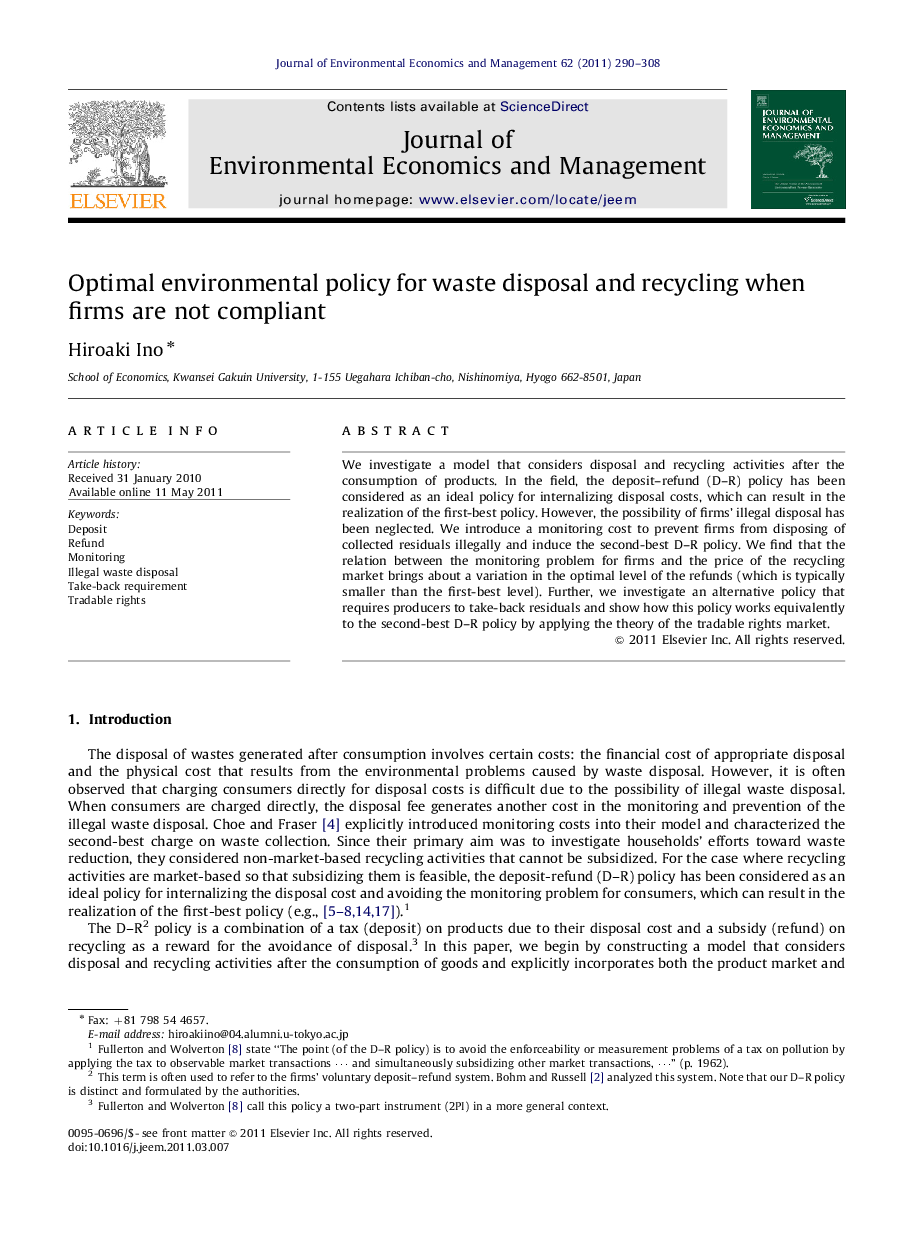| Article ID | Journal | Published Year | Pages | File Type |
|---|---|---|---|---|
| 959261 | Journal of Environmental Economics and Management | 2011 | 19 Pages |
We investigate a model that considers disposal and recycling activities after the consumption of products. In the field, the deposit–refund (D–R) policy has been considered as an ideal policy for internalizing disposal costs, which can result in the realization of the first-best policy. However, the possibility of firms' illegal disposal has been neglected. We introduce a monitoring cost to prevent firms from disposing of collected residuals illegally and induce the second-best D–R policy. We find that the relation between the monitoring problem for firms and the price of the recycling market brings about a variation in the optimal level of the refunds (which is typically smaller than the first-best level). Further, we investigate an alternative policy that requires producers to take-back residuals and show how this policy works equivalently to the second-best D–R policy by applying the theory of the tradable rights market.
